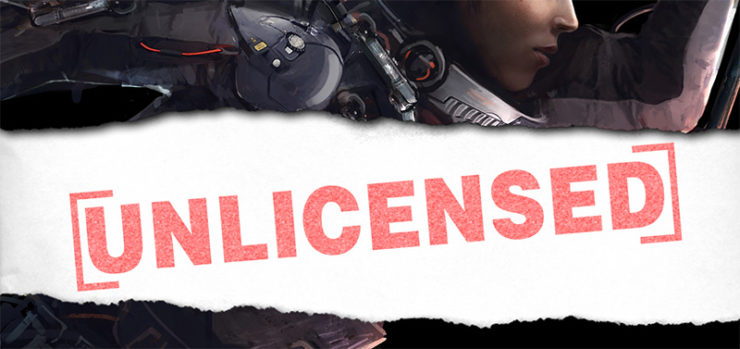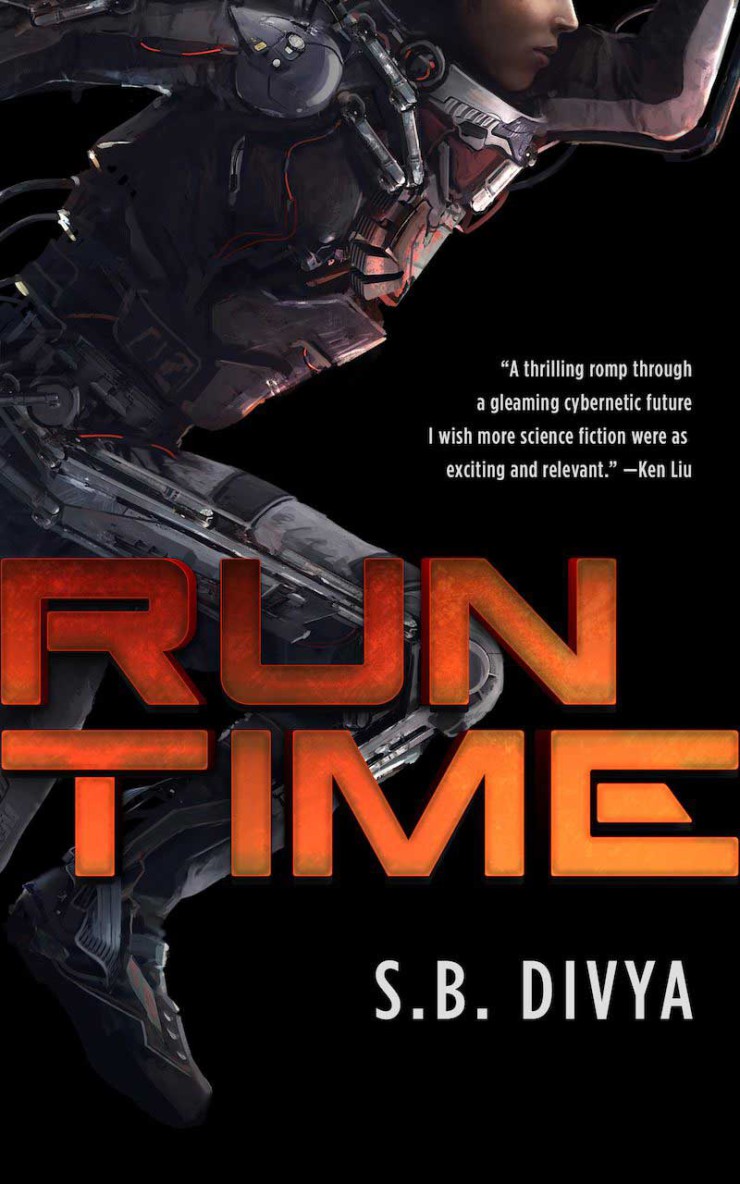Imagine the United States of America in the near future, a few decades hence. Conservative, anti-immigration sentiment has dominated government and policy. Congress passed the Licensing Act, which denies public services (like education and health care) for children born to immigrants unless their parents obtain a special license. Any state that doesn’t enforce this law is denied certain federal funds.
#
In November of 2014, I sat down to construct a near-future scenario for a science fiction novella that became Runtime. I wanted my invented world to be plausible and believable, not an unexplained dystopia. This had to feel real. A significant part of world-building is research, which also happens to be one of my favorite pastimes, and so I began with the history of immigration in the United States.
The first major law appeared in 1882: the Chinese Exclusion Act, a response to mounting fears that Chinese-born laborers were taking too many jobs. Later that same year, the US Congress passed the more general Immigration Act, which instituted a head tax (per-person fee upon entry), created an administration to regulate immigration, and gave those officials the authority to deny entry to “undesirable” persons. This set a trend that wouldn’t be reversed for decades.
In 1921, Congress legalized a system of quotas based on existing resident populations (thereby maintaining “racial distributions” in the country). In 1952, it passed the Immigration and Nationality Act, in spite of a veto by President Truman who called its construction un-American. When public sentiment shifted in favor of globalization, Congress passed the Hart-Cellar Act of 1965, eliminating quotas based on national origin. Then came the Immigration Reform and Control Act in 1986, which gave amnesty to millions of illegal immigrants and their employers.
Individual states have made contradictory marks on immigration law as well. In 1975, Texas passed a law denying public school admittance for illegal alien children. The Supreme Court struck this down in the 1982 case Plyler v. Doe. In 1994, California passed Proposition 187, a ballot initiative that prohibited illegal aliens from public services, including education. This was also struck down by the courts. Today, however, both states have major cities declaring themselves as “sanctuaries” for illegal immigrants.
#
Your mother fled an oppressive regime in the Philippines and took refuge in the USA. She has no money for your birth license. You are born on United States soil, a citizen according to its Constitution, but you do not get free health care, social services, or education as a Licensed Citizen would. Lucky for you, the decade prior to your birth saw the passage of the Postnatal Act, which allows an Unlicensed Citizen to retroactively pay for their birth license (at cost plus interest). You are determined to earn the money to buy your own.
#
I finished writing Runtime in a period when the US government favored open borders. President Obama signed DACA and DAPA. Silicon Valley couldn’t find enough engineers and lobbied for more visas. Free trade agreements were being passed or negotiated around the world.
I chose an anti-immigrant setting for Runtime because I wanted to explore the contrast with reality. I carried this forward to invent the Licensing Act. The high price of a birth license is intended—according to supporters of the law—to offset the cost of public services. The justification is that immigrant parents haven’t paid enough into the U.S. tax system, an argument that’s been presented today and in the past (as with the original head-tax of 1882).
A law professor checked my legal framework and said it wouldn’t easily be thrown out in court. He suggested that loss of funding could be a legal way for the federal government to encourage (but not coerce) a state into cooperating with licensing laws. (As an aside, the threats by the current US President against sanctuary cities or states could materialize if Congress passes legislation with appropriate care.)
Public sentiment in America swings like a pendulum, whether on immigration or any other issue. For Runtime, I reflected this by creating discontent with licensing laws, which led me to invent the Postnatal Act. This amendment allows “unlicensed” individuals to gain access to limited social services. It’s a first step in eroding the restrictions of the Licensing Act and, therefore, creates contention.
#
Your formal education begins at age 10, but you’ve taught yourself much already. With a natural affinity for math and engineering, you take an interest in the burgeoning world of embeds—humans with integrated electronics and biomechanical enhancements. You write and sell custom code for the black market while aiming for the lucrative world of adventure racing. That is your ticket out. If you win, you’ll gain a better life not only for yourself, but your family. This is your American Dream.
#
Today, less than two years after I wrote Runtime, reality has shifted in the same direction as my fictional world. Accidentally predicting the future is an occupational hazard for many science fiction authors, and I’m no exception. Although the Licensing Act has yet to materialize (and I hope nothing like it does), the United States is poised to pass legislation to increase protectionism and decrease immigration. What does this signify for the future?
Imagine that your country claims to be the land of opportunity. You are the child of an immigrant so your intellect goes unrecognized, your inventions unrealized. Others look at you and see no potential.
Your name is Marmeg Guinto. Will you accept the constraints imposed on your life, or will you fight to prove them wrong?
S.B. Divya is a lover of science, math, fiction, and the Oxford comma. When she isn’t designing high-speed communications systems, raising her daughter, scratching the cats, or enjoying dinner with her husband, she writes. She also enjoys subverting expectations and breaking stereotypes whenever she can. In her past, she’s used a telescope to find Orion’s nebula, scuba dived with manta rays, and climbed to the top of a thousand-year-old stupa. She holds degrees in Computational Neuroscience and Signal Processing. Her stories have appeared in Daily Science Fiction, Nature, and on Tor.com, and her near-future science fiction book Runtime is nominated for the 2016 Nebula Award for Best Novella.











